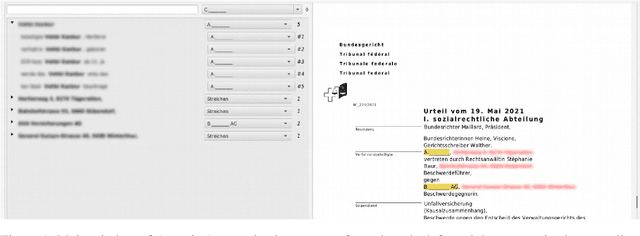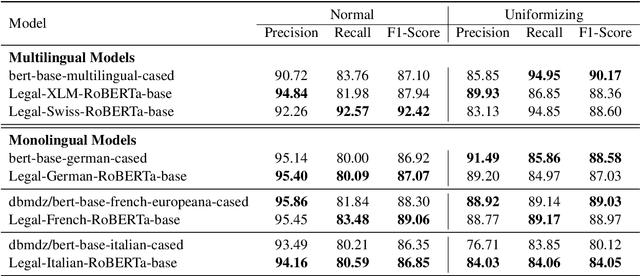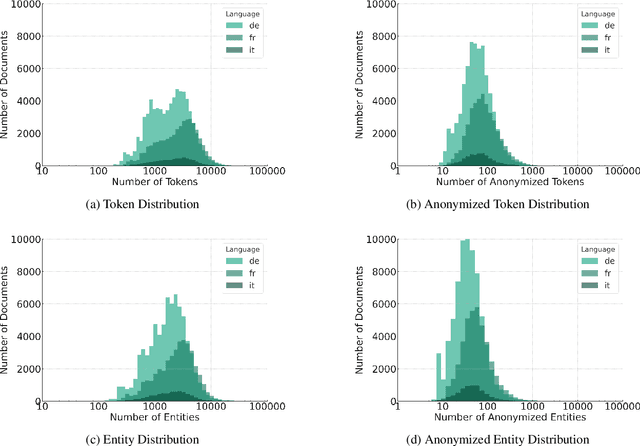Robin Mamié
SwiLTra-Bench: The Swiss Legal Translation Benchmark
Mar 03, 2025Abstract:In Switzerland legal translation is uniquely important due to the country's four official languages and requirements for multilingual legal documentation. However, this process traditionally relies on professionals who must be both legal experts and skilled translators -- creating bottlenecks and impacting effective access to justice. To address this challenge, we introduce SwiLTra-Bench, a comprehensive multilingual benchmark of over 180K aligned Swiss legal translation pairs comprising laws, headnotes, and press releases across all Swiss languages along with English, designed to evaluate LLM-based translation systems. Our systematic evaluation reveals that frontier models achieve superior translation performance across all document types, while specialized translation systems excel specifically in laws but under-perform in headnotes. Through rigorous testing and human expert validation, we demonstrate that while fine-tuning open SLMs significantly improves their translation quality, they still lag behind the best zero-shot prompted frontier models such as Claude-3.5-Sonnet. Additionally, we present SwiLTra-Judge, a specialized LLM evaluation system that aligns best with human expert assessments.
Automatic Anonymization of Swiss Federal Supreme Court Rulings
Oct 07, 2023


Abstract:Releasing court decisions to the public relies on proper anonymization to protect all involved parties, where necessary. The Swiss Federal Supreme Court relies on an existing system that combines different traditional computational methods with human experts. In this work, we enhance the existing anonymization software using a large dataset annotated with entities to be anonymized. We compared BERT-based models with models pre-trained on in-domain data. Our results show that using in-domain data to pre-train the models further improves the F1-score by more than 5\% compared to existing models. Our work demonstrates that combining existing anonymization methods, such as regular expressions, with machine learning can further reduce manual labor and enhance automatic suggestions.
 Add to Chrome
Add to Chrome Add to Firefox
Add to Firefox Add to Edge
Add to Edge